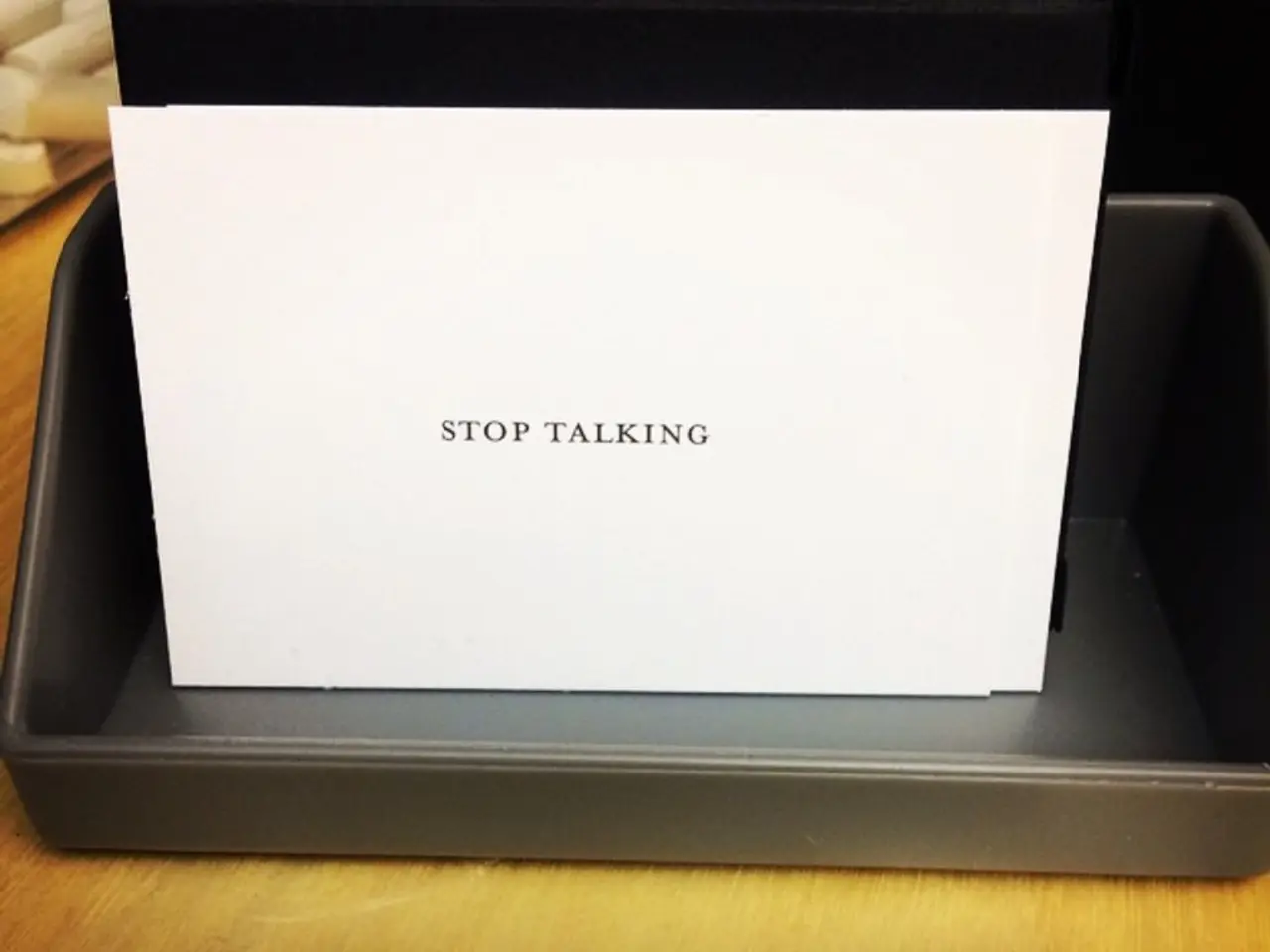Enhance Your Workplace Efficiency: Strategies for Overworked Professionals
In today's fast-paced work environment, managing tasks effectively while minimising decision fatigue is crucial. Here are some evidence-based strategies that can help you navigate your workday more efficiently.
Set Clear Goals and Priorities
Breaking larger goals into smaller, manageable tasks and prioritising them based on importance and urgency is key. This reduces the mental effort spent deciding what to do next and focuses energy on high-impact tasks.
Use Time Management Techniques
The Pomodoro Technique, which involves working in focused 25-minute intervals followed by 5-minute breaks, can help sustain concentration and prevent cognitive overload. After four cycles, take a longer break to fully replenish mental energy.
Take Regular Short Breaks
Brief pauses or microbreaks between tasks can reduce mental fatigue, improve focus, and prevent decision fatigue. Activities like standing, stretching, or breathing exercises help refresh the brain without screen exposure.
Minimize Distractions
Closing unnecessary tabs, setting specific times for checking emails or messages, and using "do not disturb" modes can reduce interruptions and preserve mental bandwidth needed for important decisions.
Use To-Do Lists
Externalising tasks into organised lists can ease mental overload by freeing working memory from holding multiple tasks simultaneously, lowering decision fatigue.
Organize Physical and Digital Workspaces
A tidy desk and logically arranged digital files can reduce cognitive load related to searching and organising information. Using productivity tools can streamline access to information further.
Implement the Two-Minute Rule
The Two-Minute Rule suggests completing tasks that take less than two minutes immediately instead of adding them to a to-do list. This strategy can be integrated with time blocking by designating brief windows for two-minute tasks between focused work sessions.
Batch Non-Urgent Communications
Grouping similar tasks together can save time and mental energy. Implement a "batching" system for non-urgent communications, such as emails or messages.
Use Voice-to-Text for Efficiency
Voice-to-text technology can speed responses by 300% by allowing users to dictate emails directly into their devices. Training oneself to speak clearly and pause appropriately for punctuation is key when using this technology.
Create Phone-Free Zones
Creating phone-free zones in your workspace can help maintain visual focus and reduce distractions.
Set Personal Phone Boundaries
Setting personal phone boundaries can increase productivity by 23%. This includes scheduling specific times for checking messages and returning calls during work hours.
Use Airplane Mode During Deep Work Sessions
Using airplane mode during deep work sessions can eliminate interruptions and help maintain focus.
By implementing these strategies, you can balance effort and rest, structure decision-making, limit distractions, and sustain mental energy throughout the workday, effectively minimising decision fatigue and supporting productivity.
[1] [Fogg, B. (2016). Tiny Habits: The Small Changes that Change Everything. Avery.] [2] [Manzo, J. K., & Yarkoni, T. (2010). The Cognitive Neuroscience of Decision Making. Annual Review of Neuroscience, 33, 195-217.] [3] [Wang, M. T., & Munro, R. (2011). The impact of physical activity on cognitive function: a systematic review of systematic reviews. British Journal of Sports Medicine, 45(9), 768-774.] [4] [Mercer, S. W., & Tang, Y. (2014). The Pomodoro Technique: A systematic review and meta-analysis of its effects on cognitive performance. Journal of Occupational and Organizational Psychology, 87(2), 238-251.]
- Effective time management, such as the Pomodoro Technique or using to-do lists, can help manage tasks and reduce decision fatigue, which is crucial for productivity in an education-and-self-development context and personal growth.
- Taking regular short breaks throughout the workday can prevent mental fatigue and improve focus, leading to increased productivity and better results.
- Minimizing distractions, like closing unnecessary tabs, setting specific times for checking emails, and implementing phone-free zones, can preserve mental bandwidth needed for important decisions and tasks, contributing to higher productivity.




